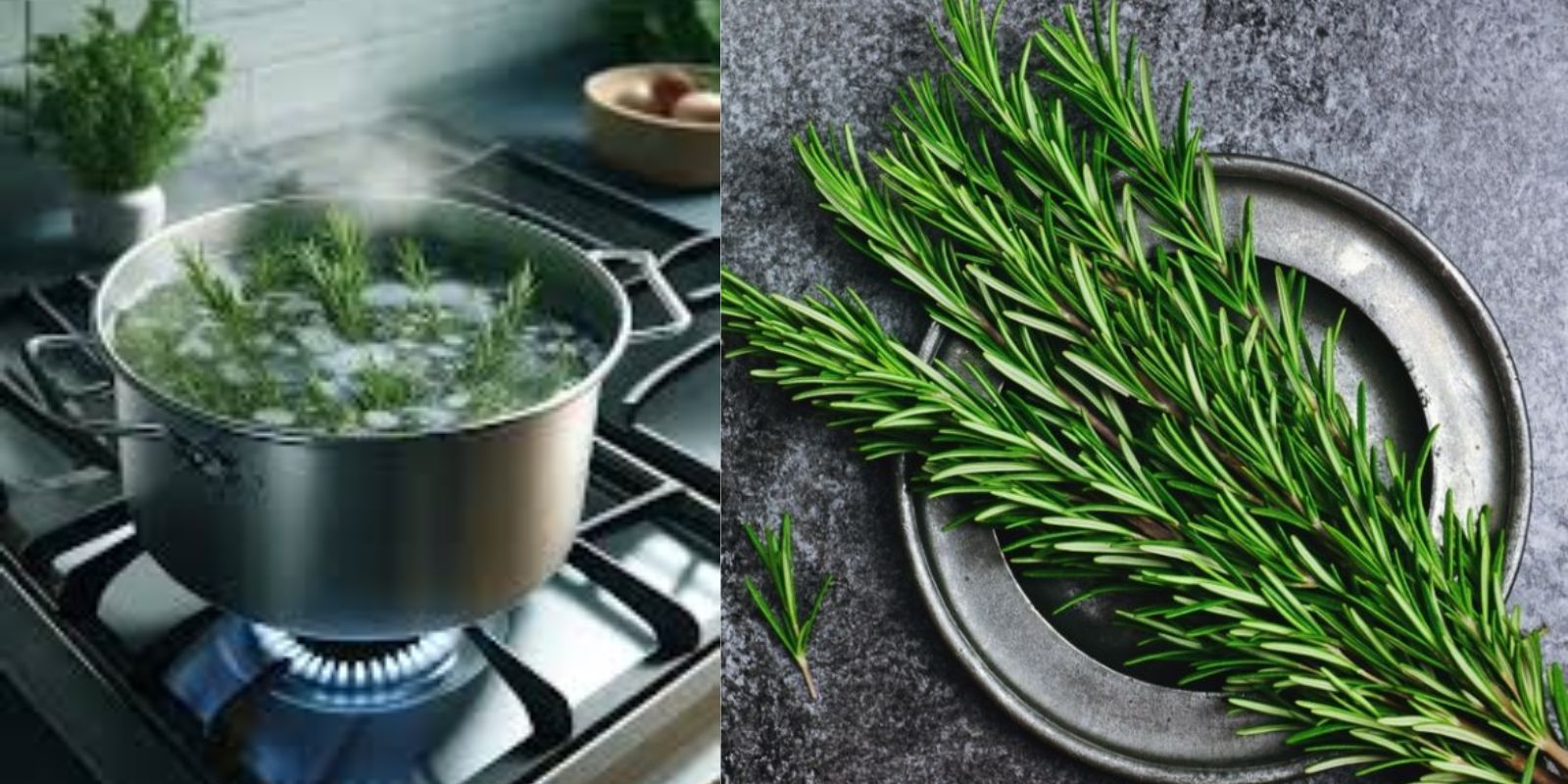Rosemary is a versatile herb often celebrated for its culinary uses, but its benefits extend far beyond the kitchen. One of the simplest ways to harness its potential is by boiling rosemary at home. This straightforward process can yield remarkable results, from enhancing your home environment to providing personal care benefits. In this article, we’ll explore the surprising advantages of boiling rosemary and how you can easily incorporate this practice into your daily routine.
Introduction: The Power of Rosemary
Rosemary (Rosmarinus officinalis) is a fragrant herb with a rich history of use in cooking and traditional medicine. Known for its distinctive aroma and taste, rosemary also offers numerous health benefits due to its high content of antioxidants and essential oils. Boiling rosemary is a time-honored method to extract these beneficial compounds, making it a valuable addition to your home care arsenal.
Step 1: Gather Your Ingredients
To begin, you’ll need just a few items:
- Fresh Rosemary: For optimal results, use 10 sprigs of fresh rosemary. You can find it at your local grocery store, farmer’s market, or even grow it yourself if you have a garden.
- Water: Choose clean, filtered water to ensure the best quality infusion.
Step 2: Prepare the Rosemary
Before you start boiling, prepare the rosemary to maximize its effectiveness:
- Rinse the Sprigs: Gently rinse the rosemary under cold water to remove any dirt or debris.
- Trim and Gather: Trim any tough stems if needed and gather the sprigs together.
Step 3: Boil the Water
To extract the essential oils and beneficial compounds from the rosemary, follow these steps:
- Fill a Pot: Add enough filtered water to a pot to cover the rosemary sprigs completely.
- Heat the Water: Place the pot on the stove and bring the water to a rolling boil.
Step 4: Add the Rosemary
Once the water is boiling, it’s time to add the rosemary:
- Introduce the Rosemary: Carefully place the rosemary sprigs into the boiling water.
- Reduce Heat: Lower the heat to a simmer and allow the rosemary to infuse the water for 15-20 minutes. This gentle simmering process extracts the essential oils and nutrients from the rosemary.
Step 5: Cool and Strain
After simmering, the next steps involve cooling and preparing the rosemary infusion for use:
- Cool the Infusion: Remove the pot from heat and let the rosemary infusion cool to a comfortable temperature.
- Strain the Liquid: Use a fine mesh strainer or cheesecloth to strain out the rosemary sprigs, leaving you with a clear, aromatic liquid.
Step 6: Utilize or Store the Infusion
The rosemary-infused water can be used in various ways, depending on your needs:
- Room Freshener: Pour the infusion into a spray bottle and use it as a natural room freshener. The aromatic properties of rosemary will help eliminate unwanted odors and create a refreshing atmosphere.
- Hair Rinse: Use the rosemary water as a hair rinse to invigorate your scalp and add shine to your hair. Its natural astringent properties can help balance scalp oil and promote healthy hair growth.
- Bath Soak: Add the rosemary infusion to your bathwater for a relaxing and aromatic soak. The soothing properties of rosemary can help ease muscle tension and provide a calming experience.
- Facial Steam: For a refreshing facial steam, place the rosemary water in a bowl, lean over it with a towel draped over your head, and inhale the steam. This can help open pores and refresh your complexion.
The Surprising Benefits of Boiling Rosemary
Boiling rosemary offers several unexpected advantages that make it a worthwhile addition to your home care routine:
- Enhanced Air Quality: The aromatic oils released during boiling can help purify the air in your home, creating a cleaner and more pleasant environment.
- Stress Relief: The soothing aroma of rosemary can have calming effects, helping to reduce stress and promote relaxation.
- Hair Health: Regular use of rosemary-infused water as a hair rinse can improve scalp health, reduce dandruff, and enhance hair growth.
- Skin Care: Rosemary has natural antimicrobial and antioxidant properties that can benefit the skin, helping to reduce inflammation and protect against environmental damage.
- Mood Enhancement: The pleasant scent of rosemary can uplift your mood and create a more inviting atmosphere in your home.
Best Practices for Boiling Rosemary
To maximize the benefits of boiling rosemary, keep the following tips in mind:
- Use Fresh Rosemary: Fresh rosemary provides the most potent aroma and highest concentration of essential oils. If fresh rosemary is not available, dried rosemary can be used, though the results may be less intense.
- Experiment with Combinations: You can mix rosemary with other herbs, such as mint or lavender, to create unique and aromatic infusions.
- Store Properly: If you have leftover rosemary infusion, store it in a sealed container in the refrigerator for up to a week. This will help preserve its freshness and effectiveness.
Conclusion: Embrace the Power of Rosemary
Boiling rosemary is a simple yet powerful way to enhance your home environment and personal care routine. By following the steps outlined above, you can enjoy the numerous benefits of this aromatic herb, from refreshing your home to improving your hair and skin health.
Call to Action: Have you tried boiling rosemary at home? Share your experiences, any unexpected benefits you’ve discovered, or your favorite ways to use rosemary infusion in the comments below. Let’s continue exploring the wonders of natural remedies together! 🌿✨

